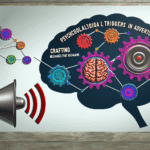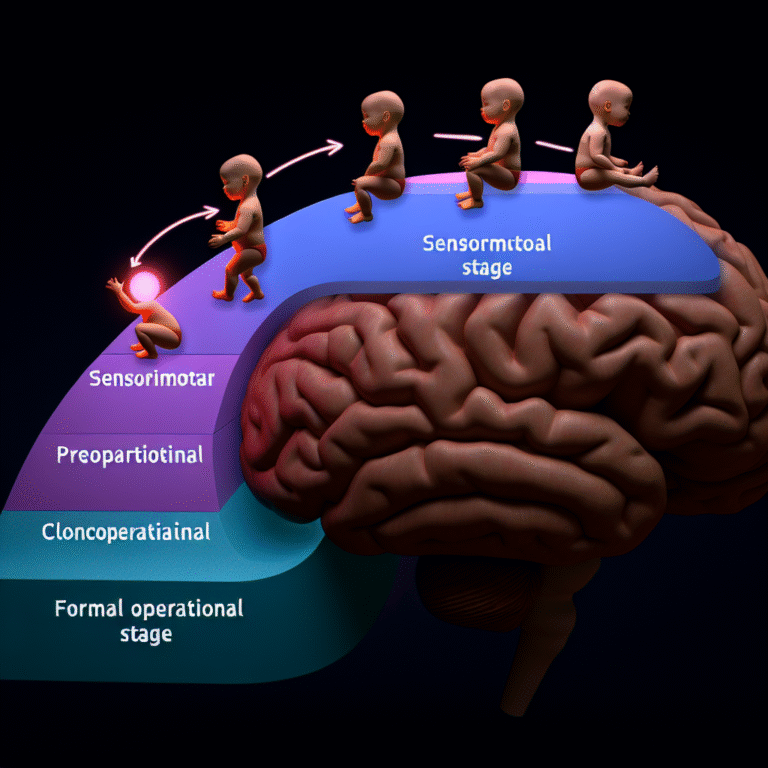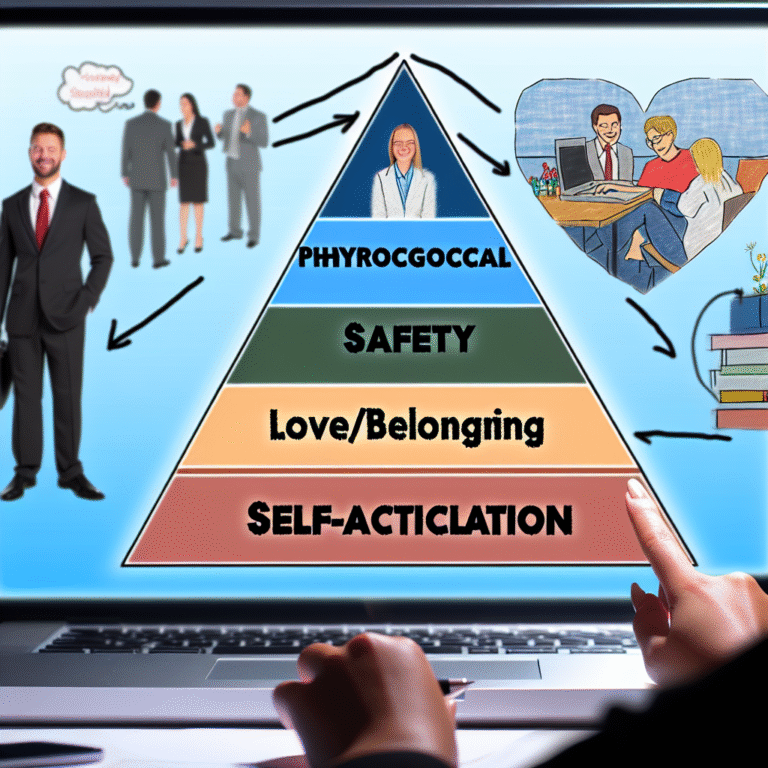
From Theory to Practice: Entering the Workforce with a Bachelor’s in Psychology – Your Ultimate Guide
Introduction
The journey from the classroom to the workplace can be both thrilling and daunting, especially for those holding a Bachelor’s degree in Psychology. As you leap into the professional world, the insights gained from textbooks and lectures often seem vague compared to real-life experiences. However, bridging this gap is not only possible but essential in today’s competitive landscape. In this article, we will explore how to transform theoretical knowledge into practical skills, ensuring you are not just an observer in your field but an active contributor. So, let’s delve into the journey of From Theory to Practice: Entering the Workforce with a Bachelor’s in Psychology, where knowledge meets effectiveness.
The Relevance of a Bachelor’s in Psychology
Understanding the Degree
A Bachelor’s degree in Psychology offers a broad understanding of human behavior, mental processes, and social interactions. Students delve into various topics, such as cognitive psychology, developmental psychology, and cultural psychology. By the end of their studies, graduates have a solid foundation in research methods, statistical analysis, and ethical considerations within psychological practices—skills that are transferable across numerous fields.
Job Market Insights
According to the Bureau of Labor Statistics, psychology-related roles are expected to grow over the next decade. Graduates can pursue various career paths, including human resources, social services, marketing, and community outreach. In fact, employers today value candidates with a strong background in psychology due to their understanding of human behavior, making them indispensable in a myriad of workplace settings.
Applying Psychological Principles Today
1. Case Study: Human Resources Management
The Scenario:
Imagine Sarah, a recent psychology graduate, landing a position in human resources. Initially, she feels overwhelmed, confronting real-world challenges far removed from her textbook experiences. There’s a significant difference between understanding the theory of motivation and applying its principles to keep employees engaged.
The Application:
Sarah employs her understanding of Maslow’s Hierarchy of Needs—an essential psychological concept. She designs a comprehensive onboarding program that addresses various employee needs, fostering a supportive work environment. This initiative not only boosts morale but also reduces turnover rates dramatically.
Analysis:
Sarah’s case illustrates that psychology is not just theoretical; it is a practical tool for solving real workplace challenges. By applying foundational concepts to her role, she enhances both employee satisfaction and organizational performance.
2. Case Study: Marketing Strategies
The Scenario:
John graduated with a Bachelor’s in Psychology and took a position in a marketing firm. He often found himself in brainstorming sessions where the strategies discussed seemed disconnected from psychological principles.
The Application:
Utilizing his knowledge of consumer behavior, John introduced concepts from cognitive psychology to the marketing team. By focusing on how messaging could be tailored to evoke emotional responses, he helped create campaigns that resonated more deeply with audiences.
Analysis:
John’s ability to integrate theoretical insights into tangible marketing strategies highlights the power of psychological knowledge in driving business success. This connection not only increased the company’s client base but also demonstrated the practical utility of a psychology degree in marketing.
Skills You Gained in College: Turning Theory into Action
Transferable Skills Acquired During Your Bachelor’s
Critical Thinking:
- Theory: Understanding psychological theories requires critical analysis.
- Practice: In the workplace, this skill translates to solving complex problems and making informed decisions.
Research Skills:
- Theory: Conducting research and understanding data interpretation are core to psychology.
- Practice: Employers value your ability to analyze data, conduct market research, or evaluate employee satisfaction.
Communication:
- Theory: Course projects often revolve around group work and presentations.
- Practice: Whether in writing reports or during team meetings, effective communication is pivotal in conveying ideas and collaborating successfully.
- Empathy:
- Theory: Courses include understanding diverse perspectives through empathetic reasoning.
- Practice: In fields like counseling or social services, employing empathy enhances client relations and outcomes.
Enhancing Your Skills Further
Continuous Learning Opportunities
While your degree provides a solid foundation, the working world is constantly evolving. Engage in workshops, continue your education with online courses, or seek certifications that align with your career goals. For instance, a certification in human resources (PHR or SHRM) can complement your psychology degree, making you more marketable.
Networking: The Bridge Between Theory and Practical Application
Building Professional Connections
Networking plays a pivotal role in making the transition from theory to practice easier. Engaging with professionals through platforms like LinkedIn or attending industry-related events can open doors and provide valuable insights into the practical applications of a psychology degree.
JOINING PROFESSIONAL ASSOCIATIONS
Joining associations such as the American Psychological Association (APA) can provide resources, not only for job searching but also for networking opportunities, mentorship, and continued education.
Informational Interviews
Consider reaching out to professionals in fields that interest you for informational interviews. This strategy offers firsthand insights into how they use their psychology degree in their roles, providing clarity on how to bridge the gap between theory and practice.
The Power of Internships and Volunteer Work
Gaining Hands-On Experience
Internships and volunteer opportunities offer you invaluable experience. They allow you to apply theoretical knowledge in real-world situations while also building your resume. Many companies value experiential learning, which often results in a better understanding of the nuances within your desired field.
Case Study: Interning in a Non-Profit Organization
The Scenario:
Maria, a psychology student, interned at a non-profit organization that catered to mental health.
The Application:
Her academic knowledge enabled her to assist in designing programs that targeted mental health education for the community. She conducted focus groups, used psychological principles to assess community needs, and worked with a team to implement changes.
Analysis:
This experience not only augmented her understanding of practical applications of psychology but also transformed her resume into a more attractive prospect for future employers.
Developing a Career Path: From Theory to Practice
Identifying Your Passion
One of the most significant challenges faced by psychology graduates is determining their niche. Reflect on your interests and strengths gained from your degree. Are you drawn to research, clinical practice, business applications, or community service? Pinpointing your passion will help you tailor your career path effectively.
Seeking Mentorship
Establishing mentorship relationships can provide guidance and direction as you transition from theory to practice. A mentor can help you navigate the job market, refine your skills, and enhance your professional networks—serving as an essential compass in your career journey.
Conclusion
Transitioning from academic theory to real-world practice is a journey filled with opportunities, challenges, and invaluable insights. A Bachelor’s in Psychology equips you with skills that, when effectively applied, can lead to flourishing careers across various fields. By embracing continuous learning, building strong networks, and actively seeking hands-on experiences, you can make informed decisions that align with your career goals.
As you embark on this journey, remember that each step you take is one of growth. Embrace the process, remain adaptable, and utilize the knowledge you’ve acquired. The world is waiting for your unique contributions in the endless applications of psychology. Welcome to your future!
FAQs
1. What jobs can I get with a Bachelor’s in Psychology?
You can work in areas such as human resources, marketing, social services, mental health support, and research assistant roles.
2. Is a Master’s degree necessary for a successful career in Psychology?
While a Bachelor’s in Psychology opens many doors, pursuing a Master’s or Doctorate may enhance your opportunities, particularly in clinical settings or specialized research.
3. How can I gain relevant work experience while still in college?
Look for internships, volunteer opportunities, and part-time work in fields related to psychology, such as tutoring, counseling, or community service programs.
4. What additional skills should I develop to enhance my employability?
Focus on developing critical thinking, communication, data analysis, and networking skills.
5. Are there specific certifications that can complement my psychology degree?
Consider certifications in areas of interest, like human resources (PHR), counseling, project management, or even data analytics, depending on your career goals.
With these insights and strategies, you are poised to embark on a fulfilling journey of From Theory to Practice: Entering the Workforce with a Bachelor’s in Psychology—turning your aspirations into achievements.
















